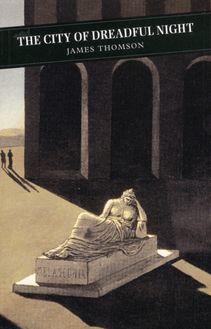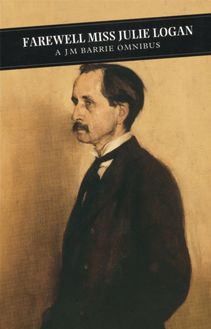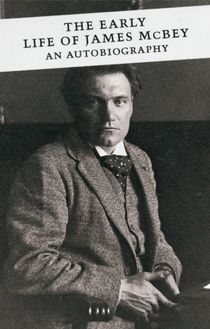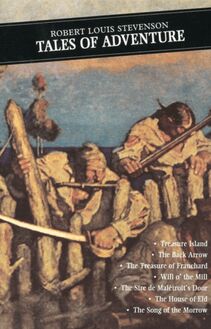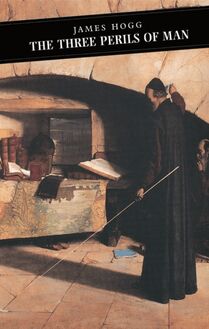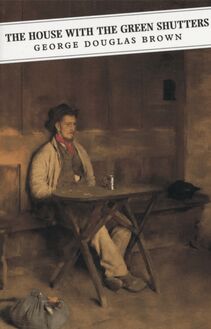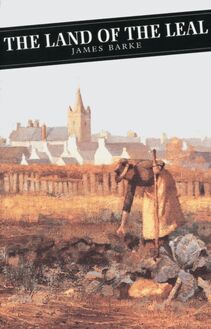Three Perils Of Man , livre ebook
358
pages
English
Ebooks
2010
Vous pourrez modifier la taille du texte de cet ouvrage
Obtenez un accès à la bibliothèque pour le consulter en ligne En savoir plus
Découvre YouScribe en t'inscrivant gratuitement
Découvre YouScribe en t'inscrivant gratuitement
358
pages
English
Ebooks
2010
Vous pourrez modifier la taille du texte de cet ouvrage
Obtenez un accès à la bibliothèque pour le consulter en ligne En savoir plus
Publié par
Date de parution
01 juillet 2010
Nombre de lectures
3
EAN13
9781847674647
Langue
English
Publié par
Date de parution
01 juillet 2010
Nombre de lectures
3
EAN13
9781847674647
Langue
English
Contents
Introduction
THE THREE PERILS OF MAN
The Text
Notes
Glossary
Introduction
Until fairly recently James Hogg has been known mainly as a poet. But he wrote several very different novels of astonishingly high quality; he is one of the finest of Scottish short story writers; and in The Three Perils of Man he created a work which goes beyond any of these categories – a work which he rightly called a Border romance. The fact that this comic, fantastic, and extravagant epic was dismissed as a trivial production in 1822 by Edinburgh literary circles, and by Walter Scott himself, can only be understood by looking briefly at the prejudiced and discouraging way in which Hogg’s fiction (and indeed Hogg’s presence) was received in polite Edinburgh. For its rich and varied living examples of folk lore and legend alone, his work should have excited at least the antiquarian interest of Scott and his contemporaries, yet the truth would seem to be that from the moment of his entry into literary Edinburgh in 1810, Hogg, as a serious writer of fiction, was doomed to misunderstanding and misdirection. This was tragic for Scottish literature since his genius was, in its unique way, as remarkable as that of Scott himself. Hogg was a victim of the ever-growing Edinburgh and Scottish upper-and middle-class snobbery of the late eighteenth and nineteenth centuries. Ramsay, Fergusson and Burns had met this snobbery – indeed that feature common to them all, what David Daiches has called a ‘crisis of identity’, arose directly out of these writers’ unsureness as to where their audience and their significant critics were to be found. There has indeed been much discussion about the general Scottish cultural background to Hogg and his contemporaries, but the significance of his personal and literary relationships is only now being recognised.
In his influential Scott and Scotland (1936) Edwin Muir claimed that no complete and healthy critical awareness existed in Edinburgh at the beginning of the nineteenth century, and that this was replaced by the doctrinaire disagreements of the great periodicals of the day, the Whig Edinburgh Review and the Tory Blackwood’s Magazine . Contemporary criticism now challenges such a sweeping and denigratory view of Scottish literature in the period, but nevertheless sees real harm to creative effort coming from the adverse effect of the new genteel and Anglicised standards of taste and politeness which then held sway in the polite circles of the capital. Scott’s unique and yet popular vision commanded, of course, the admiration of all classes. Susan Ferrier, on the other hand, abandoned fiction after 1832 because of a sense of the activity being socially unacceptable. The same sensibility made her refuse to read John Galt’s fiction because its vulgarity ‘beats print’. John Gibson Lockhart’s two considerable attempts at serious investigation of the darker aspects of Scottish psychology, Adam Blair (1822) and Matthew Wald (1824), caused shock and disapproval to a degree which we now find difficult to understand, and which may have persuaded him to try other forms of writing. The refined Edinburgh which admired the fiction of John Wilson (‘Christopher North’) was bound to find Hogg’s tales offensive, with their rude Border health and their directness of expression.
In 1810 Hogg came into this society like a bull into a china shop, with his plan to run a weekly magazine, The Spy . With his Border background of rich oral poetry and story, and his wholeness of attitude, which integrated manual labour and poetic vision, the ‘Ettrick Shepherd’ was an anachronism in nineteenth-century Edinburgh. His directness and honesty of approach attracted patrons at first, and then embarrassed them. And a curious and distasteful element emerges from his relations with some of his patrons. They kept up the pretence of being his friend, when they were in fact exploiting him.
While Walter Scott was not one of these false friends, and did help Hogg frequently, it was nevertheless always as Hogg’s cultural and social superior. His letters are littered with allusions to the ‘great Caledonian Boar’ and the ‘hog’s pearls’ (referring to Hogg’s novel The Three Perils of Women ). Hogg was annoyed at how Scott would manage him in public; and on one occasion the great man’s help was offered on the condition that Hogg put his poetical talent under lock and key forever. Scott would give money and well-meant criticism about the lack of planning in Hogg’s stories, but in terms of a full and frank interchange of ideas between literary and intellectual equals he failed him. The Scott of Hogg’s Domestic Manners of Sir Walter Scott (1834) had ‘a too strong leaning to the old aristocracy’, ‘a prodigious devotion for titled rank, amounting almost to adoration’. This Scott was bored at shepherds’ discussions and quizzed his simple hosts in superior fashion, and supervised Hogg’s table manners on public occasions. The relationship is found in a nutshell in Scott’s dinner joke – ‘If ye reave the Hoggs o’ Fauldshope / Ye Harry Harden’s gear…’ – that is, you insult Scott’s vassal.
And if Scott, the counsellor of writers the world over, could often ignore or fail to see the real talent of Hogg, it is not surprising to find lesser Edinburgh figures following his lead. Hogg’s highly complex relations with Blackwood’s Magazine illustrate this perfectly. He appears to have had a major hand in starting the magazine in 1817, beginning the famous parody of biblical writing in the scandalous ‘Chaldee manuscript’, which lampooned most of the Edinburgh notables of the time. His new friends, John Wilson and John Gibson Lockhart, fresh from Oxford, lacking Hogg’s geniality, then reworked this, and allowed the savage note which came to be attributed as much to Hogg as to themselves. It is ironic in the light of this and later exploitation, that in 1817 Hogg had advised William Blackwood that
Wilson’s papers have a masterly cast about them; a little custom would make him the best periodical writer of the age – keep hold of him.
It seems that as Wilson and Lockhart grew more friendly with Blackwood, Hogg was increasingly viewed through glasses coloured by snobbery. Lockhart was not so bad – indeed he paid a marvellous tribute to Hogg’s ‘unaffected simplicity… modesty and confidence such as well becomes a man of genius’, along with his ‘noble consciousness of perfect independence’, in his Peter’s Letters to His Kinsfolk (1818). But is there not still something here of the ritual of praising the Scottish peasant-poet that was enacted with Burns? There is no doubt about the attitude of John Wilson, whom modern critics increasingly identify as an embodiment of unhealthy and pre-Kailyard developments in Scottish literature of the period, with his warped genius, his double-dealing, and his sentimental verse and politically biased and melodramatic fiction – all the more influential in the ’twenties and ’thirties for Wilson’s being editor of Blackwood’s as well as the politically appointed and sadly underqualified Professor of Moral Philosophy at Edinburgh University from 1820. Here is a typically ambiguous Wilson treatment of Hogg in Blackwood’s :
You, James, are the rough diamond he [the author of an article on Hogg in The Scots Magazine ] proposes to describe with mathematical exactness. Really, I felt, during the solemn note of preparation, much as one feels in a drawing room, when, the stupid servant having forgotten to announce the name, the door slowly moves on its hinges, and some splendid stranger is expected to appear; but when, to the pleased surprise of the assembled company, in bounced you yourself, the worthy and most ingenious shepherd, rubbing your ungloved hands (would I were a glove on that hand!) as if you were washing them, with a good humoured smile on your honest face, enough to win every heart, and with a pair of top boots… instantly recalling the shining imagery of Day and Martin’s patent blacking.
This combines the depiction of Hogg as buffoon with an appearance of affection in a way which the Noctes Ambrosianae , that series of imaginary evenings of drink and wayward discussion involving Wilson as ‘Christopher North’, with assorted friends and the Ettrick Shepherd, was to continue throughout the 1820s, a treatment particularly poisonous in its exploitation of its victim’s good nature. Hogg wrote about this to Blackwood:
I am almost ruing the day that I ever saw you. I have had letters, newspapers, and magazines poured in upon me… The country is full of impatience. No-one has any right to publish aught in my name without consulting me… It is confoundedly hard that I should be made a tennis ball between contending parties. If you can find out by the writ or otherwise who the shabby scoundrel is that writes the enclosed, pray return it to him in a blank cover.
Wilson could be even more direct. In 1821 he wrote:
Pray, who wishes to know anything about his life? Who indeed cares a single farthing, whether he be at this blessed moment dead or alive? Only picture to yourself a stout country lout, with a bushel of hair on his shoulders that had not been raked for months, enveloped in a coarse plaid impregnated with tobacco, with a prodigious mouthful of immeasurable tusks, and a dialect that set all conjecture at defiance, lumbering in suddenly upon the elegant retirement of Mr. Miller’s back shop… What would he [Hogg] himself have thought if a large surly brown bear, or a huge baboon, had burst open his door when he was at breakfast?
Wilson’s statement about the country lout lumbering in on a scene of elegant retirement represents polite Edinburgh’s heartfelt attitude to Hogg. And Hogg in his turn was bound to clash with the Edinburgh Literati . Of the trio who wrote the ‘Chaldee manuscript’, he alone managed to stay friendly with the Whigs who were satirised therein. Of an older generation, straightforward and without af
